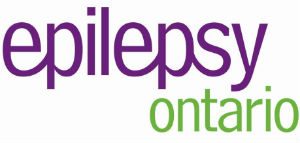By Deron Hamel
This week’s edition of Voices of Epilepsy looks at some of the common myths about seizure disorders and helps set the record straight on everything from how to react when a person is having a seizure to how epilepsy affects a person’s ability to hold a driver’s licence.
 One of the most common myths about epilepsy concerns what to do when a person is having a seizure. First-aid training used to include instructions to hold down a person’s tongue with a spoon or other object to prevent the person from choking on their tongue. We now know this is the wrong approach.
One of the most common myths about epilepsy concerns what to do when a person is having a seizure. First-aid training used to include instructions to hold down a person’s tongue with a spoon or other object to prevent the person from choking on their tongue. We now know this is the wrong approach.
In reality, people having seizures are not in danger of choking on their tongue.
Do not put your fingers or any other object into a person’s mouth while they’re having a seizure, says epilepsy information specialist Suzanne Nurse.
“By putting a foreign object in someone’s mouth while they’re having a seizure you can actually break the person’s jaw or teeth, as well as cause a choking hazard,” Nurse says.
Other common myths about epilepsy:
There is only one type of seizure
In reality, there are many different types of seizures. Epilepsy information specialist Suzanne Nurse says people often mistakenly believe all seizures result in the person having convulsions.
“The way that seizures look varies greatly depending on the seizure type and the brain networks involved in the seizure. Some seizures resemble daydreaming and last only a few seconds,” Nurse says.
“Other seizures cause a brief visual disturbance, or a tingling or numbness sensation, or an uncontrollable twitching in a region of the body, or a brief inability to communicate, or a sudden change in mood,” Nurse says.
Having epilepsy disqualifies people from driving
Epilepsy is eminently treatable. While new onset seizures are typically associated with a loss of driving privileges, people can regain their licences once their seizures are controlled with treatment, Nurse says.
“In Ontario, there are specific criteria that must be met in order to have a driver’s licence reinstated which includes a seizure-free period of six months since the last seizure for non-commercial drivers with epilepsy,” Nurse says.
“There are some exceptions when seizure-freedom isn’t required, for example people who have seizures that do not impair awareness or the ability to drive and people who only have seizures while sleeping. Other criteria include conscientiousness in following treatment recommendations. If someone’s seizures recur they need to stop driving.”
Epilepsy is only developed in childhood
Epilepsy can begin at any age. It’s true that there are many types of epilepsy that begin in early childhood, however, it’s not uncommon for someone to start having seizures as an adult. In fact, stroke and neurodegenerative diseases can be risk factors for epilepsy and are the main causes of epilepsy in seniors, Nurse says.
Seizures are caused by supernatural forces
This myth may seem a bit odd to most people, but in some cultures seizures are still seen as being the result of supernatural causes.
“Epilepsy used to be known by other names including the ‘sacred disease,’ and seizures were often explained by demonic possession or intervention by the gods,” Nurse says.
“The understanding that epilepsy is in fact a brain disorder began more than 2,400 years ago when Hippocrates postulated that the epilepsy had a natural cause and was no more divine or sacred than other diseases.
“Modern neurology and neuroscience have proven Hippocrates correct, but the myth persists in some circles.”
If you have feedback on this story, or have a story of your own that you would like to share, please contact the newsroom at 800-294-0051, ext. 23, or e-mail deron(at)axiomnews.com. You can also leave a comment below.






